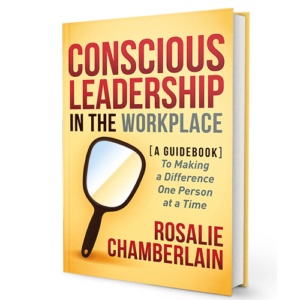Many of us are familiar with the term “ego” being used to describe the sense of self that we have, a self that is separate from other people. This is how the study of psychology uses the term. I’d like to posit that the ego can be either healthy or unhealthy: a sense of self that serves us or one that does not.
The healthy ego is that which motivates us to develop and be authentic, and, for me, to be aligned with your whole self – mind, body, and spirit. The healthy ego is interested in further development and is able to understand and overcome fears that are not empowering to us, instead of holding us back from being our best. A healthy ego moves us forward and connects our intuition and healthy sense of self. Our healthy ego allows a high level of self-esteem. When we have a healthy ego, we understand that the way to measure self-esteem is to measure it within ourselves. Self-esteem is not about you being compared against or above another (we will discuss comparisons shortly below). A healthy ego, as you might guess, comes from self-awareness.
How can we judge the health of our egos? When there is a feeling of openness to others’ perspectives, ways, similarities and differences, our egos are in a healthy state. We realize that other perspectives exist beyond our own, and don’t feel threatened by them.
The unhealthy ego or little ego, by contrast, is full of fear. It is limiting and is often dualistic. The little ego measures you against others or situations and its make-up can contain negativity, unhealthy competition, and victimhood. The little, unhealthy ego wants more than anything to be comfortable and safe, and seeks always to create a comfort zone around itself, setting up barriers to different perspectives or others. The trouble with this is that the comfort zone is an illusion; if we were truly comfortable, we wouldn’t need barriers.
There are many apparently successful people with unhealthy egos. That is, we call them successful because of their title, their income, their power or the developments of their company. A clue for us to evaluate this apparent success is to explore the culture such people create around themselves. Do their colleagues enjoy their company? Do the individuals within the organization feel valued and that they are able to contribute? Is there a high level of turnover at the organization? Is the environment healthy for people outside of that leader?
The unhealthy ego is focused on comparing self to others and not necessarily in a productive way. I’ve often thought that comparisons are odious. A good friend made this comment to me when my second son was born. I heard her say it in relation to her two boys and I took it on in relation to my children. As a parent, one of the joys was being able to see my sons grow and develop into their unique, individual selves. They aren’t inverted images of each other. Likewise, keep comparison in perspective in relation to yourself and your work and with respect to those thoughts that slip in seemingly so innocently, when in reality they can be a huge contributor toward separating from others. When the little ego is scared of not being enough and believes it needs to be superior, it is a time to explore why we compare. Here is that fear thing again.
When we work in leadership, we necessarily work in company with other people. I love the Japanese proverb, “None of us is as smart as all of us.” Logically, we can see that when every member of a team has the opportunity to contribute their talent, the whole team – the entire organization – has greater success. The unhealthy ego stands in the way of this success. It demands attention, and wants the attention all for itself. The little ego is not nearly as smart, talented, or informed as the whole group it purports to be a part of and lead.
In business there will be core competencies that are baseline measurements for performance. These are the criteria for success and they are necessary for establishing goals and developing individuals. But sometimes, the comparisons stop here when the individual is defined only in relation to those competencies, this may not allow for the unique gifts of individual. Limited comparisons such as these do not help define a performance plan or start a conversation that contributes to an individual’s ability to enhance their natural talent and skills within the work environment.
This is an excerpt from my book.
Conscious Leadership in the Workplace: A Guidebook to Making a Difference One Person at a Time
Conscious Leadership in the Workplace takes the discussion of inclusive and dynamic leadership to the next level with powerful tools and exercises that help you create an environment where everyone has the opportunity to contribute and succeed.








